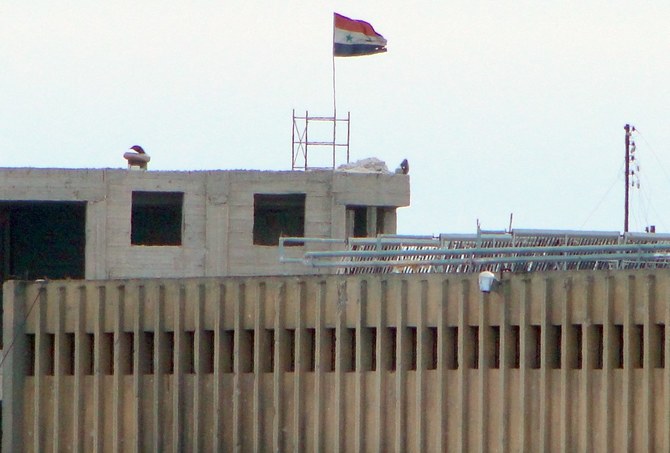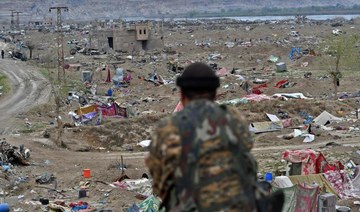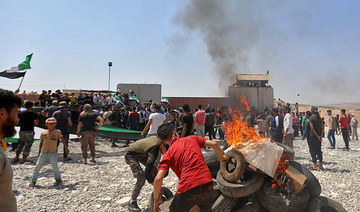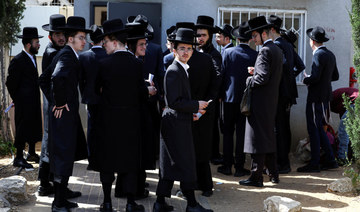ATLANTA: The US Treasury Department on Wednesday announced a new list of sanctions targeting individuals and organizations linked to human rights abuses and the killing of civilians during the civil war in Syria. They include Syrian nationals, parts of the country’s military intelligence services, and two armed rebel groups.
US government officials from the State and Treasury departments said the designations include eight prisons controlled by the Syrian government that were sites of “serious human rights abuses” against prisoners and political detainees, and five senior officials involved in supervising the torture and killing of inmates.
Several branches of Syria’s military intelligence services responsible for torture and other human rights violations, and a number of high-ranking officers, were also hit with sanctions.
“The individuals and the entities that were designated today have been a party to gross violations of human rights, (and the) torture and killing of detainees,” said Andrea Gacki, director of the Office of Foreign Assets Control at the Department of the Treasury.
US officials said that horrific torture and thousands of murders have taken place at Syrian military prisons, and the conditions detainees face are inhuman. At least 14,000 prisoners have reportedly died after being tortured.
“The actions announced today demonstrate that the US government continues to advocate for Syrian rights,” said Gacki.
Secretary of State Antony Blinken said: “The world must renew its shared resolve to promote the dignity and human rights of all Syrians.
“We urge the international community to join our calls for a nationwide ceasefire, the immediate release of those arbitrarily detained, and for information about the fate of the missing. The Assad regime must know that these steps are critical to any lasting peace or economic prosperity in Syria.”
Sanctions were imposed on Ahrar Al-Sharqiya, an armed Syrian rebel group active in the country’s eastern provinces, which the US government said is linked to Al-Qaeda and is responsible for human rights violations and murders of political activists.
Saraya Al-Areen, a militia group in Latakiya province that is aligned with the Syrian regime and has engaged in combat in the region on behalf of the nation’s military, was also targeted.
An Al-Qaeda financial facilitator in Turkey, and a fundraiser and recruiter for Al-Qaeda in Syria were also designated. Gacki said this underscores the US government’s commitment to disrupting the activities of terrorist groups.
Sanctioned individuals included military intelligence officials Brig. Gen. Asef Al-Deker, Brig. Gen. Ahmed Al-Dib and Maj. Gen. Malik Ali Habib.
According to the State Department, the sanctioned prisons are operated by Syrian Military Intelligence Branch 215, Branch 216, Branch 227, Branch 235, Branch 248, and Branch 290, and have been the sites of numerous human rights violations and abuses by the Assad regime since the start of the conflict.
In 2019 the Treasury Department enacted the Caesar Act, which imposed sanctions on the regime and President Bashar Assad in an attempt to force him to end attacks by his forces on Syrian civilians and hold him accountable for atrocities against prisoners. The act was named after an unidentified photographer known only as “Caesar” who documented the torture and abuse of detainees inside Syrian prisons.
The images revealed that 8,382 prisoners were abused during detention by branches of the Syrian military intelligence services. These branches were identified by the Independent International Commission of Inquiry on Syria, established by the UN’s Human Rights Council, as facilities where death in detention and human rights abuses have occurred.


























